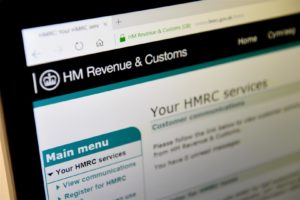02-Aug-2018
HMRC warns it’s time to declare offshore assets
 HM Revenue and Customs (HMRC) is urging UK taxpayers to come forward and declare any foreign income or profits on offshore assets before 30 September to avoid higher tax penalties.
HM Revenue and Customs (HMRC) is urging UK taxpayers to come forward and declare any foreign income or profits on offshore assets before 30 September to avoid higher tax penalties.
New legislation called ‘Requirement to Correct’ requires UK taxpayers to notify HMRC about any offshore tax liabilities relating to UK income tax, capital gains tax, or inheritance tax.
However, some UK taxpayers may not realise they have a requirement to declare their overseas financial interests. Under the rules, actions like renting out a property abroad, transferring income and assets from one country to another, or even renting out a UK property when living abroad, could mean taxpayers face a tax bill in the UK.
The Financial Secretary to the Treasury, Mel Stride MP, said: “Since 2010 we have secured over £2.8bn for our vital public services by tackling offshore tax evaders, and we will continue to relentlessly crack down on those not playing by the rules.
“This new measure will place higher penalties on those who do not contact HMRC and ensure their offshore tax liabilities are correct. I urge anyone affected to get in touch with HMRC now.”
From 1 October more than 100 countries, including the UK, will be able to exchange data on financial accounts under the Common Reporting Standard (CRS). CRS data will significantly enhance HMRC’s ability to detect offshore non-compliance and it is in taxpayers’ interests to correct any non-compliance before that data is received.
The most common reasons for declaring offshore tax are in relation to foreign property, investment income and moving money into the UK from abroad. Over 17,000 people have already contacted HMRC to notify the department about tax due from sources of foreign income, such as their holiday homes and overseas properties.
Customers can correct their tax liabilities by:
- Using HMRC’s digital disclosure service as part of the Worldwide Disclosure Facility or any other service provided by HMRC as a means of correcting tax non-compliance.
- Telling an officer of HMRC in the course of an enquiry into your affairs.
- Or using any other method agreed with HMRC.
Once a customer has notified HMRC by September 30th of their intention to make a declaration, they will then have 90 days to make the full disclosure and pay any tax owed.
If taxpayers are confident that their tax affairs are in order, then they do not need to worry. If anyone is unsure, HMRC recommends they seek advice from a professional tax adviser or agent.
Contact Barter Durgan today on 02392 738311 or by Email: accountants@barterdurgan.co.uk and we’ll be happy to help.




